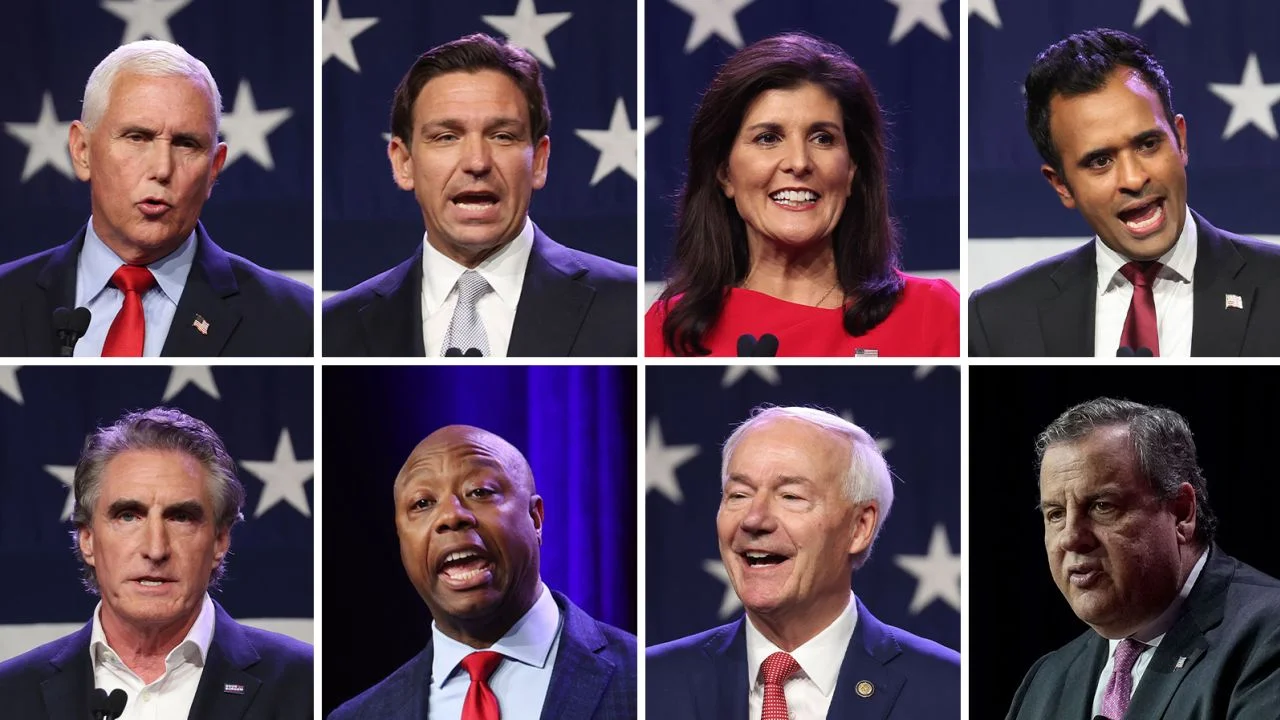As the political landscape readies itself for the opening Republican debate of the 2024 presidential race, a collection of eight candidates has emerged, having met the criteria set forth by the Republican National Committee (RNC). This gathering of potential contenders sets the stage for a significant moment in the political narrative. Yet, the shadow of one high-profile absentee looms large – former President Donald Trump, who recently revealed his intention to forgo the debate, using his social media presence to communicate this decision.
The debate is scheduled to unfold in Milwaukee, a pivotal city situated in Wisconsin. Notably, this state has played a decisive role as a battleground, having witnessed Trump’s victory in 2016, only to be reclaimed by President Biden in the 2020 election. This geographical significance is heightened as Milwaukee is also designated as the host city for the 2024 Republican National Convention.
This impending debate, occurring a mere four months prior to the influential Iowa caucus scheduled for January 15, holds a critical position in the primary season. An intriguing turn of events is highlighted by a recently released CBS News poll, which indicates a surge in Trump’s popularity despite facing multiple indictments.
This poll’s findings illustrate that Trump holds a commanding lead with 62% support among potential Republican primary voters. In contrast, Florida Governor Ron DeSantis follows distantly with 16% backing. The remainder of the candidates are scattered within single-digit percentages in terms of support.
Key Highlights:
Candidates Who Qualify:
The RNC confirmed the participation of several prominent figures who met the rigorous requirements. These include Florida Governor Ron DeSantis, North Dakota Governor Doug Burgum, former New Jersey Governor Chris Christie, former U.N. Ambassador Nikki Haley, former Arkansas Governor Asa Hutchinson, former Vice President Mike Pence, entrepreneur Vivek Ramaswamy, and Senator Tim Scott of South Carolina. The criteria necessitated a minimum of 1% support across various eligible polls, a donor base of at least 40,000, and an unequivocal commitment to support the ultimate GOP nominee, along with refraining from participation in debates unsanctioned by the party.
Doug Burgum’s Challenge:
Governor Doug Burgum unexpectedly faced a physical challenge, sustaining an injury during a basketball game with his staff just before the debate. As the event neared, his participation remained uncertain due to his injury, with the hope that he would be able to partake in the debate walk-through.
Trump’s Absence:
While Trump’s absence was confirmed only recently, hints of his decision were evident in earlier statements. Citing the results of the CBS News poll, Trump pointed to his robust polling numbers as he announced his decision not to engage in the debates. His definitive stance was conveyed through a statement on Truth Social, a platform he frequently uses. Additionally, Trump taped an interview with former Fox News host Tucker Carlson, with the airing scheduled around 9 p.m. ET.
The Venue, Moderators, and Anticipated Topics:
Fox News takes the reins as the host of the two-hour debate, scheduled for 9 p.m. ET. The moderation will be undertaken by Fox News anchors Bret Baier and Martha MacCallum. The debate’s focus is set on eliciting candidates’ perspectives on enhancing the nation. Topics under consideration include abortion and the U.S. role concerning Russia’s incursion into Ukraine.
The 2024 Primary Debate Calendar:
The subsequent debate is poised to occur on Wednesday, September 27, at the iconic Ronald Reagan Library in Simi Valley, California.
Democrats and Their Debate Approach:
In contrast to their Republican counterparts, the Democratic party has yet to announce any debate plans. This aligns with the historical pattern wherein incumbent presidents typically abstain from participating in party debates. Among the Democratic contenders, Robert F. Kennedy Jr. and Marianne Williamson lack the experience of holding elected office and are regarded as less serious challengers.




